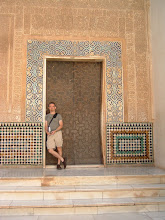Again, the Doha round of negotiation has ended with no resolution.
Developed and developing countries are not able to create a framework to lower trade barriers on agricultural goods.
The result is that world trade will continue to function unevenly through bilateral trade deals and WTO rulings.
For consumers looking for a break on rising food costs - keep looking. Right now, the governments of the world are not looking out for your pocketbooks.
Interestingly, Brazil seems to be a powerhouse in this round of negotiations. Rising commodity prices and over a decade of sound fiscal policy and social investment, have left Brazil with a strong economy and currency and a rising middle class. Because of this, Brazil was able to remain firm on issues important to them.
Thursday, July 31, 2008
Doha Round Collapses - Again
Posted by Joshua Lenon: 0 comments
Tuesday, July 29, 2008
Doha Talks Close to Collapse - Again
Emerging factors:
- Many European countries feel that China cannot continue to be treated as a developing country. Being labeled a 'developing country' allows a nation to maintain higher trade barriers than it would normally be allowed under WTO rules.
- The United States continues to demand more access to other countries in return for concessions. Depending on the demands, this is not the worst position. The U.S. remains the market every country wants to exploit.
- Germany is the world's largest exporter. I need to do more research on this one, but this is the claim by Reuters.
Posted by Joshua Lenon: 0 comments
Friday, July 25, 2008
Doha Talks Continue
The latest chapter in the seven-year ongoing negotiations in free trade is coming to a close. Since 2001, the World Trade Organization (WTO) has been periodically negotiating a new series of global free trade agreements.
The Doha round – named after the Qatar city where the talks first started – is supposed to focus on agricultural products. Food & drink are two of the products that the developing world might be able to competitively produce.
This terrifies many different parties. Why? Let's take a look at the issues.
What are the issues involved?
Environmentalists fear that increased trade in agricultural products will encourage environmentally irresponsible actions by desperately poor people. (See Brazil's problem with slash-and-burn ranchers.)
Isolationists fear what happens when a nation becomes dependent on other nations for food supplies. (Although, these same people demand tomatoes and oranges during January's icy grip and bananas year round. Where do they think this fruit grows? Not in North America.)
Lastly, North American & EU politicians fear what happens when they stop giving their local farmers subsidies. (You can't win votes in the "heartland" if you aren't writing government checks to farmers. France has an especially strong agricultural voting bloc.)
These fears have stretched the Doha talks from the projected four years to seven years with more to come.
In order to address some of these fears, the talks now include lowering tariffs on industrial and manufactured goods and services such as telecommunications. This is a large change from the original mandate of the talks. These items have been included to ease the fears of developed nations.
It is hoped that developed nations will open their markets to developing world agricultural goods if the developed can shipped finished goods and services to these poorer nations.
What is the controlling International Law?
Right now, none. The point of the Doha talks is to create a global body of international trade law governing trade barriers. Absent an agreement leading to WTO authority, the world will continue to muddle along with hodge-podge bilateral trade agreements and bootstrapped General Agreement on Tariff and Trade (GATT) provisions.
How does this affect you?
Right now, failure in the Doha talks makes it easier for the government to continue to pay farm subsidies. While helping farmers sounds good, at times it has artificially increased the price of food to the average consumer.
So, successful Doha talks may lead to cheaper food for the average American consumer.
Profitable agriculture may also stabilize developing countries desperate for income. If you can make a living farming, you may not fall into the cycle of the angry dispossessed that afflicts these nations. More peace is a possible outcome of successful Doha talks.
However, the inclusion of services in the talks means that it may be easier for multi-national corporations to outsource white-collar jobs to developing nations.
The impact of Doha can be positive, but negotiators for all side need to remain mindful of some pitfalls.
Government of developed nations should fight for stricter environmental and labor practices in the poorer countries.
Poorer countries should allow the developed world to create social insurance for their workers that might be negatively impacted by this lowering of trade barriers.
Posted by Joshua Lenon: 0 comments




